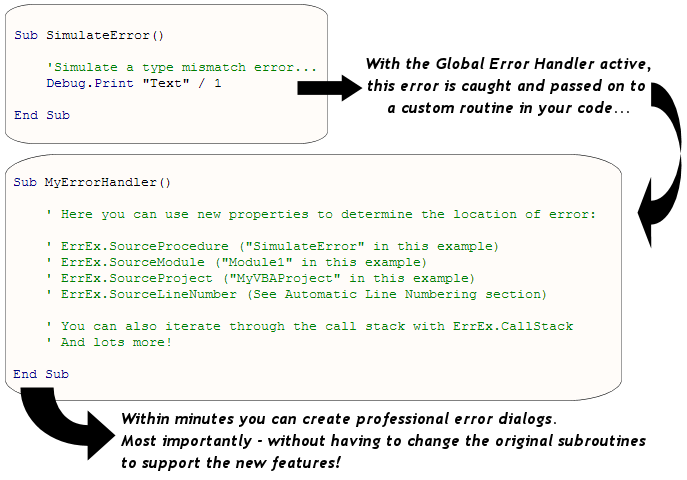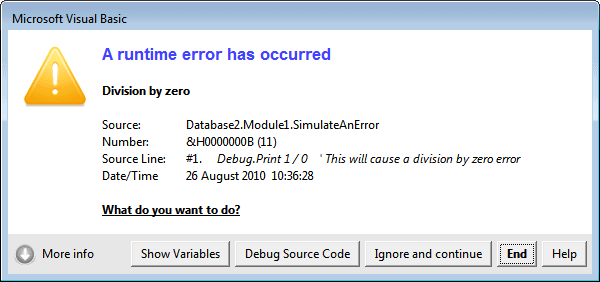IN THE SPOTLIGHT: MDE to MDB Conversion Service
(also supports: ACCDE to ACCDB, ADE to ADP, etc)
IN THE SPOTLIGHT: Access Database Repair Service
An in-depth repair service for corrupt Microsoft Access files
IN THE SPOTLIGHT: vbWatchdog
VBA error handling just got easier...

" vbWatchdog is off the chart. It solves a long standing problem of how to consolidate error handling into one global location and avoid repetitious code within applications. "
- Joe Anderson,
Microsoft Access MVP
Meet Shady, the vbWatchdog mascot watching over your VBA code →
(courtesy of Crystal Long, Microsoft Access MVP)
IN THE SPOTLIGHT: vbMAPI
An Outlook / MAPI code library for VBA, .NET and C# projects
Get emails out to your customers reliably, and without hassle, every single time.

Use vbMAPI alongside Microsoft Outlook to add professional emailing capabilities to your projects.
IN THE SPOTLIGHT: Code Protector
Standard compilation to MDE/ACCDE format is flawed and reversible.
vbWatchdog installs a small callback hook into the VBE debugger. From then on, when an error occurs, our hook function first parses the error and passes details about the error on to a procedure that you have declared in your code.
Whether you want to just log errors to a simple text file, implement your own professional error dialogs, or some other advanced feature like ignoring 'On Error Resume Next' statements for debugging purposes - all this is easily achievable.
Furthermore, one of the main features of vbWatchdog is that we provide you with full details of where the error occurred in your source code (source line number, procedure name, module name, etc) - even if your project is fully compiled (e.g. Access MDE/ACCDE formats formats).


It's important to understand that once your global error handler is enabled, every error that occurs in your code now passes through your custom global error handler routine.
In other words, even if you specify 'On Error Resume Next' in your local procedure code, your global error handler will still be called. From within your global error handling routine, you can then decide what states of local error handling you wish to listen to or ignore. For example, most developers choose to ignore errors that occur when 'On Error Resume Next' has been specified
in your local procedure.
See the Sample.mdb for a real example of implementing your global
error handler.
iTech Masters | VAT: GB202994606 | Terms | Privacy Policy | Sitemap | News